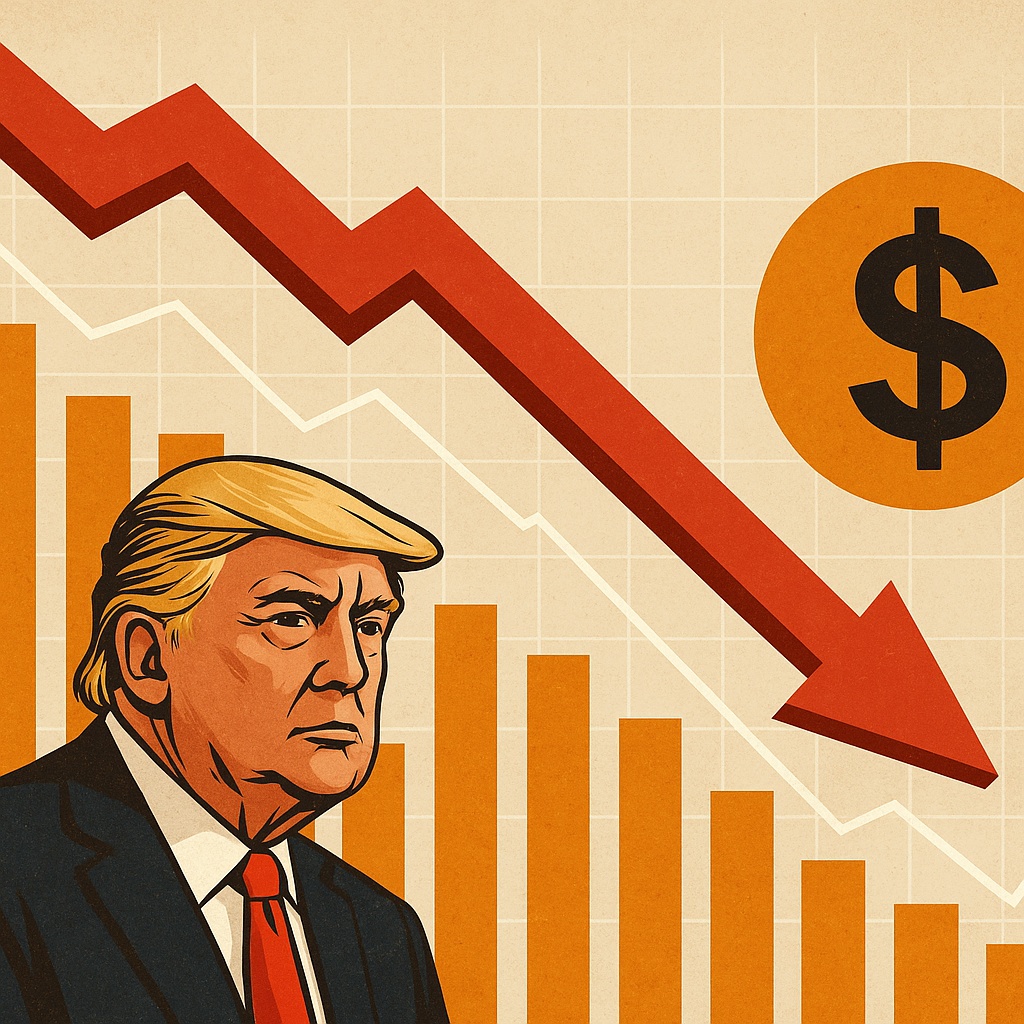U.S. stock futures slipped on Monday morning following renewed political pressure on the Federal Reserve and escalating trade tensions that have reignited concerns among investors. President Donald Trump’s latest critique of Fed Chair Jerome Powell has added a fresh layer of volatility to an already cautious market landscape.
Politics and Central Banking Collide
Markets are on edge as President Trump intensifies public criticism of Jerome Powell, questioning the Federal Reserve’s autonomy and suggesting rate policies are stifling economic growth. Historically, such political commentary has spooked markets, and investors fear that continued interference may undermine confidence in the central bank’s independence.
This development coincides with persisting global trade tensions, especially with China and the European Union, further rattling investor sentiment. The S&P 500, Nasdaq, and Dow Jones futures all opened lower, reflecting cautious trading ahead of the opening bell.
Why This Matters for Investors
At the heart of this market pullback is the uncertainty surrounding U.S. monetary policy and international trade relations. The Federal Reserve’s recent signals about maintaining higher interest rates longer into 2025 have already been a point of contention. Combined with political rhetoric, these factors are challenging investor expectations and contributing to market instability.
According to Reuters, the Dow futures dropped nearly 0.6%, while the S&P 500 and Nasdaq futures both slipped about 0.5%. These declines follow last week’s mixed earnings reports and indicate that macroeconomic uncertainty is playing a larger role in shaping investor behavior.
Fed Independence: A Market Pillar at Risk?
For decades, markets have relied on the Fed’s independence to navigate complex economic environments. Any perceived erosion of that independence—especially during a volatile global economy—could affect everything from inflation expectations to foreign investor confidence.
Economic analysts at Investopedia warn that public political attacks on the Fed could weaken its credibility, potentially leading to delayed or less effective responses to economic changes. That could in turn impact bond yields, equity valuations, and currency stability.
Trade Tensions Add Fuel to the Fire
Simultaneously, unresolved trade disputes continue to cloud the economic outlook. Despite prior progress in negotiations, tariffs and retaliatory threats are back in focus, contributing to a sense of unease across industries heavily reliant on global supply chains. Technology, manufacturing, and agriculture are particularly vulnerable sectors.
As noted in Daily Observer and AP News, fears are mounting that renewed tensions could disrupt Q2 earnings and growth forecasts for multinational corporations. With several major companies due to report this week, investors are bracing for potentially cautious outlooks.
Key Investment Insight
Investors should remain vigilant and consider diversifying portfolios to hedge against macroeconomic and geopolitical risks. Defensive sectors like utilities and consumer staples may offer some resilience. Additionally, keeping an eye on interest-rate sensitive assets and Treasury yields could provide insight into market expectations around Fed policy shifts.
Using options strategies or rotating into low-volatility ETFs are also potential risk management tools during such uncertain periods.
With political rhetoric heating up and international trade issues resurfacing, the market appears to be entering another phase of heightened sensitivity. Investors would be wise to monitor developments closely and adopt a strategic approach to portfolio management.
Stay informed with MoneyNews.Today for the latest market insights, economic updates, and investor-focused analysis that keeps your edge sharp and your investments informed.





